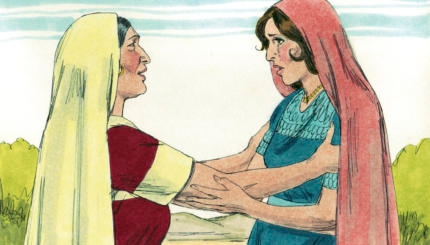The Myth of Arrival
I’ve been looking for meaningful full-time work since crash-landing in Philadelphia in August. After living in Boston for eight years and being known and seen as a resource in the community, I suddenly found myself a stranger again, trying to make it as a rabbi in a new city – one full of other talented rabbis, no less.
I am impatient to move from Point A to Point B: from part time work to full time work, from assistant rabbi to rabbi, from teacher to director of education.
We easily fall victim to the idea that we’ll only be happy when we find ourselves in the perfect situation: the perfect job, the perfect partner, the perfect house. This is what a friend of mine refers to as “the myth of arrival.”
If we stop and pay attention, we notice both the world around us and our sense of what we need and want are in constant flux. No situation will ever be perfect, and if it is, it won’t be. Opposed to our obsession with “making it,” this week’s
portion,
Mishpatim
, proposes we focus on the journey.
When the Jerusalem Temple existed, Passover, and were each harvest festivals which culminated with people bringing offerings to the Jerusalem Temple. We no longer make a pilgrimage to a place like the Temple, but we do make a sacred journey through time: from the barrenness and desolation of winter to the mucky renewal of spring, and the color and heat of summer. During each of the three agricultural festivals, God instructs, “none shall appear before Me empty handed” (Exodus 23:15).
According to this week’s reading, the pilgrim travels to the Temple on Passover: “for in it you went forth from Egypt”: each year, we start by recognizing that we are journeying from slavery to freedom and to clarity.
What are we to carry with us?
On Sukkot, the pilgrim brings “the first fruits of your work, of what you sow in the field”; and on Shavuot the pilgrim brings “the results of your work in the field.” As we make the first tentative steps on our journey, we gather the first fruits of our labor, relishing in our small successes: the dissertation proposal, the first performance, the fact we even got up early to write. We then bring the results of our work in from the field.
We pause three times each year to savor our accomplishments.
The Torah asks us to free ourselves from others’ ideas of success by using the gifts we have been given.
The Torah also instructs, “They shall not appear before God empty-handed, but each with his own gift, according to the blessing that God has bestowed upon you. (Deuteronomy 16:16-17). During this dark, cold time of year, the Torah asks us to free ourselves from others’ ideas of success by using the gifts we have been given. To recognize if we have been using our gifts we will have something to offer. Our role in this journey is to serve That which is Greater than Us by using our unique gifts – as gardeners, artists, caretakers, healers.
A midrash that connects our verse to the Book of Ruth (a text about Shavuot) says that “every place the people of Israel entered, they did not leave empty-handed.” This commentary suggests that God does not ask us to bring anything in particular, but is simply promising us that if we fully enter our lives, “none [of us] shall appear before Me empty handed.”
For now, as much as I look forward to finding meaningful full time work next year, I am also beginning to remember to cherish my small successes: the moments I sense warm connections forming with my patients and their families in my hospice work; the time I am making to write in the morning; the joy I feel when my teaching lights up my students’ faces with insight.
Perhaps what is most important is to “arrive” by being present to what is in-between Point A and Point B – to the journey of life, itself.
The Jewish world is full of debates. Get the latest in MyJewishLearning’s weekly blogs newsletter.



